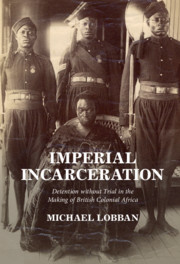Acknowledgements
In researching and writing this book, I have benefited greatly from discussing the themes explored here with many different people. It was Michihiro Kaino who first started me down the path which has led here, by questioning me about nineteenth-century English ideas of the rule of law. My thinking on the subject has benefited immeasurably from many conversations about jurisprudence, history and the rule of law with Maks Del Mar. I have also much enjoyed the intellectual companionship in the past few years of the London Legal History group, including Steve Banks, David Foster, Catharine MacMillan, Charlotte Smith and Ian Williams. I have profited greatly from the insights and support of my colleagues at the London School of Economics, and their enthusiasm for the kind of interdisciplinary work done here. The thoughtful questions of my students have also helped sharpen the arguments of this book. I gratefully acknowledge the LSE’s generous research funding, which has not only facilitated the research for this book, but also enabled it to reach a wider audience online. I also had the pleasure of spending part of the fall of 2018 as a visiting Bok Fellow at the University of Pennsylvania Law School, where Sally Gordon and Bill Ewald were marvellous hosts, and where I was able to explore some of the themes of this book with the excellent students there.
I am grateful for invitations to present parts of the work as lectures at the University of Lancaster (for the 2018 Iredell lecture) and the Cambridge Centre for English Legal History. Parts have also been presented at the conference on ‘Legal History and Empires: Perspectives from the Colonised’ held at the University of the West Indies, Cave Hill Campus, Barbados, in 2018 and as seminars to the Max Planck Institute for European Legal History, to the London Legal History Seminar, to the History and Theory in Constitutional Development workshop of the University of Notre Dame in London, and to the Law and History Workshop at Tel Aviv University. Parts of the material discussed in Chapter 8 were delivered as a Current Legal Problems lecture at University College, London, in 2015, and published as ‘Habeas Corpus, Imperial Rendition and the Rule of Law’, Current Legal Problems (2015), pp. 27–84. I have also benefited greatly from the wider intellectual community of the American Society for Legal History, at whose annual conferences I have had many opportunities to discuss the development of this work. Many scholars have helped shape my thinking on the role of law in imperial history, both through their own work and through questions raised in conversation. Among those who have provided me with useful ideas, leads and suggestions in the last few years in this field are John Allison, Lauren Benton, Shaunnagh Dorsett, Lisa Ford, Patrick Graham, Trina Leah Hogg, Rande Kostal, Assaf Likhovski, John McLaren, Amanda Tyler, David Schorr, Tim Soriano and Inge Van Hulle. I am also grateful for the comments of the two anonymous reviewers who read this work for Cambridge University Press, and who helped to sharpen its argument. On a more practical level, I am grateful to Thembile Ndabene for the help given to me while I was working in the archives in Cape Town and to Anne Clarkson, for helping me tie up loose archival ends when the lockdown prevented further travel. A special word of thanks must go to Sally Gordon, who has been an exemplary editor of this book for the Studies in Legal History series, and a great editorial colleague (along with Holly Brewer and Reuel Schiller) for over a decade. I am also grateful to Cecelia Cancellaro, Rachel Blaifeder, Victoria Phillips and Ruth Boyes at Cambridge University Press, for making the publication process so smooth.
Closer to home, I am grateful to Frédérique Lachaud for her support, for her good company and for opening my eyes to a much wider vista of historical questions. I’ve also had the great pleasure over many summers – and more recently in ‘virtual’ form during the darker days of the Covid lockdown – of the companionship of my wider family, Caroline, Joe and Darragh, Joe and Ruth, and Sasha, Abbie and Ben. The book itself is dedicated to the memory of my nephew Daniel, whose company has been much missed by us all in the last decade.

